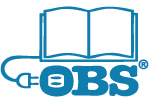A Vanishing World Made Permanent through Publishing
Anne C. Wyman, once the Boston Globe’s first full-time travel writer and long-time editorial page editor, in 2010 asked OBS’s Protean Press to publish her book “Kiping’s Cat: A Memoir of my Father.” Over the years, this publishing project grew into four Wyman books, two of them posthumous publications by Anne’s father himself, Jeffries Wyman. →
